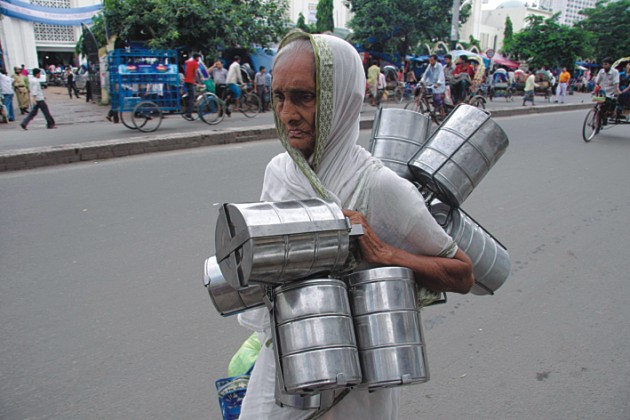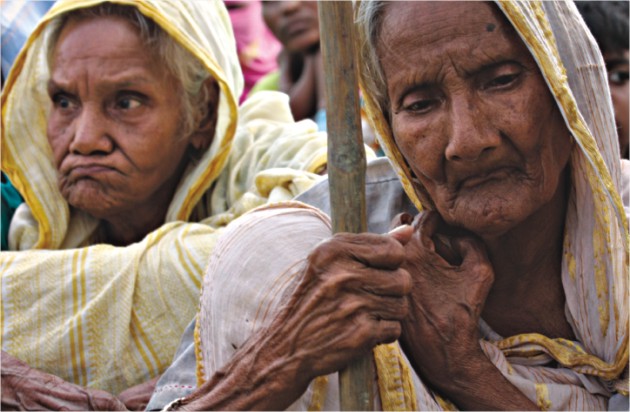
Inside
|
Getting and Staying Active in Later Life On the occasion of International Day of Older Persons, ASM ATIQUR RAHMAN discusses the plight and prospects of ageing in 21st century Bangladesh. Old age is neither a disease nor an individual problem; rather, it has become a worldwide challenge that must be addressed globally. "Later life" is unavoidable, inevitable, universal and excessively troublesome. No one can stop the process of ageing. The quality of life and the rate of ageing both vary considerably depending on a number of factors such as education, occupation, purchasing capacity, lifestyle, food habit, residential location, belief and culture, etc. Surprisingly, ageing takes place within the context of family members, kin, neighbours, friends, work associates and the state. Lifelong preparations, making intergenerational linkages, using appropriate technology, developing right-based societal relationships, upholding religious values at the personal level, political commitment and governmental undertaking at the macro-level can help ensure a healthy ageing and active later life. Policy responses to ageing until now have tended to focus only on the provision of medical care and income security for older persons, which remain important but have been inadequate compared to the rate of ageing occurring now and projected to intensify in the coming decades. Population ageing is a by-product of scientific development in human societies bound to remain a dominant social problem throughout the 21st century. It is also gaining increasing recognition as one of the most influential forces of change in societies; becoming one of the defining global issues to shape the future of the world's societies. Ageing has an influence on development and interacts with global patterns in labour and capital markets, governmental pension services and traditional support systems, all of which are further shaped by technological change and cultural transformations. Population ageing has a direct impact on socio-economic development, particularly in the case of countries going through economic transition such as Bangladesh. Bangladesh, with its 10 million out of 160 million in the older age group, is not out of the current global ageing stream and is facing a daunting challenge in providing social security, health care and other safety net programmes to the seniors. At present, around 7 percent of Bangladesh's population constitutes the elderly population, but their absolute number (about 10 million) is quite significant, their rate of increase is also very alarming. About 8 million of them live in rural areas. Due to a fall in mortality rate, accompanied with fertility decline over the last few decades, the elderly population of Bangladesh is continuously increasing. According to 1911, 1951, 1974, 1981, 1991 and 2001 decennial censuses, the elderly populations in Bangladesh were 1.38 million, 1.86 million, 4.06 million, 4.90 million, 6.04 million and 7.98 million respectively. Side by side, the projected number of older persons in 2025 and 2050 are 18 million and 44 million accordingly. About 85,000 new older people are added to the over 60-year age group each year, making Bangladesh one of the 20 countries with the largest number of elderly population and by 2025 Bangladesh, along with four other Asian countries, will account for about half of the world's total elderly population. With dramatic changes in climate and demography in recent years, Bangladesh is confronting unprecedented intimidation from disaster and population ageing. Both occurrences are increasing alarmingly and have become a threat to its development. Considering its geography, climate, population, governance, politics and culture, Bangladesh is one of the most severely disaster-prone and elderly-threatened least-developed countries in the world. The cumulative effects of the aforesaid environment affect older persons the most, leading them to distress, vulnerability and helplessness and requiring logical and right-based societal intervention. So, in order to ensure sustainable development, Bangladesh needs to meet the challenges of both frequent disasters and rapidly growing older persons.
The older section of the population is increasing much faster than the total population, their vulnerability multiplying the dimension of the problem. Most of them are seriously suffering from some basic human needs related challenges, viz. lack of minimum income and employment opportunities, extreme poverty, senile diseases accompanied by absence of proper health, medical care, food, nutrition and comfortable living arrangements, isolation, exclusion, loneliness, negligence, psychosocial and cultural complexities, etc. Their capacity for doing creative and socially useful work is underestimated. Feeling of proximity of loss of status in the family and society, spectre of reduced income, insecurity and deprivation in the later life often cause depression, calling for proper action programmes to reduce their vulnerabilities and bring them into mainstream social life as active, productive, healthy and dignified members of society. In Bangladesh, the situation of older women is much worse than older men because of their longer life expectancy and extreme vulnerability due to social and economic marginalisation. Other reasons behind the feminisation of poverty in old age include gender discrimination, pattern of economic dependency, reproductive and family responsibilities, widowhood, rural and religious tradition etc. Older women also own fewer assets and have less control over family income, and are more willing to endure more chronic disease and disability than their male counterparts. Antagonistic relationship between daughters-in-law is a very common feature in this society, which affects care of the older persons especially in the case of older women. Moreover, widowed, divorced, single or even uprooted older women and men live in severe destitution. This humiliated life sometimes encourages them to commit suicide or, more frequently, to depend on begging. The majority (68 percent) of older women in Bangladesh are widowed. Husbands' death is the start of their descent into almost complete dependency and gradually they lose their rank, prestige and authority along with livelihood security. Usually they begin to live with the families of their married sons and spend their final years completely dependent on the good wishes and pity of their sons and daughters-in-law. But they take on more responsibilities in caring for their grandchildren and other household work. There is also a mistaken presumption that older persons are physically inactive, not open to new ideas and unable to participate effectively in economic activities. When considered and seen as welfare issues, older persons are regarded as a burden on society and passive recipients of care. Lack of public awareness and information about older persons' contributions, circumstances, issues or needs create negative images of ageing. Major political parties and the Bangladesh government have shown some interest in and taken initiatives for the benefit and welfare of older persons in recent years, an encouraging trend for future age-care initiatives. Unfortunately, despite Bangladesh being a country of thousands of NGOs, the role of the major NGOs is not yet satisfactory in this regard. Only a handful of NGOs are involved in ageing-related activities as one of their side programmes. Also unfortunate is the fact that national and international donor agencies and personal donors are not at all interested to extend their hand towards age-care activities. There are hardly any physicians, dentists, psychologists, psychiatrists, nurses, architects, journalists, social workers or any other professionals offering their specialised services exclusively for older persons. Naturally, family, kin, community, neighbours and religious guides and organisations still remain the main sources of care, service and security to the huge number of older people in Bangladesh. Bangladesh, historically the upholder of Asian, Indian, Hindu, Buddhist and Islamic culture, addressed its older people basically through family, kin, community and religious support system. Outside family, the Hindus and Buddhists introduced 'Briddhasram' (refuge for the elderly people, organised and maintained by the local community people, particularly on the basis of religion). On the other hand, Muslims maintain their elderly members within the family environment as a part of Islamic obligation. So, the family care system has traditionally been considered as the deepest reservoir of support for the older persons in this region.
Government initiatives The Bangladesh government recognised the issue related to ageing in the 3rd Five Year Plan (1985-90) under the heading "Old and Infirm", and allocated 5 million BDT for age-care in its 4th Five Year Plan (1990-95) for the first time but could not spend the amount. Again, in the 5th Five Year Plan (1997-2002) the government allocated 40 million BDT for community based age-care services and this allocation was also not spent. On the eve of the revival of democratic practice in Bangladesh, in the 90s, a sincere commitment for age-care programmes was observed in the election manifestos of different major national political parties. It was a historical political victory for the older people of Bangladesh through a great political consensus. Following this result, the Khaleda Zia Government (1991-1996) disbursed 90 million BDT through Bangladesh Association for the Aged and Institute of Geriatric Medicine (BAAIGM) to construct a geriatric hospital and an old home in Dhaka as well as five geriatric clinics in the five divisional headquarters in the country. Fortunately, this allocation was used properly and in time. The Sheikh Hasina Government (1996-2001) for its part introduced Old-age Allowance Programme from the revenue budget in 1998 to subsidise the poor and vulnerable older persons. For the first time the Bangladesh government officially recognised state obligation in supporting the helpless older persons of the country. Accordingly, in 1998, the government, through the Ministry of Social Welfare, made arrangements to identify and select the poor and older section of the older people (aged 65+) in rural areas to distribute 100 BDT (around US $ 2.00) for each person per month keeping a 50:50 gender balance. At one stage this programme started to cover some urban poor older persons as well. The following is the list of this programme advancement: As a member country of the First World Assembly on Ageing, organised by the UN in 1982 in Vienna, Austria and the Second World Assembly on Ageing, organised by UN in 2002 in Madrid, Spain and as a signatory to VIPAA and MIPAA, the Bangladesh government has constituted a National Committee on Ageing. The Ministry of Social Welfare has finalised the National Policy on Older Persons, which is yet to be approved by the cabinet for gazette notification. Research has helped to unearth hitherto unknown facts about the ageing situation in Bangladesh, allowing for the following recommendations to be made with regards to basic services for the elderly: -Bangladesh National Committee on Ageing, the highest technical body to advise the authorities on ageing issues, formed in 1984 with the Ministry of Social Welfare as per Vienna International Plan of Action on Ageing 1982, needs to be revised and activated, and should undertake appropriate and committed steps for the well-being of older persons in Bangladesh. -Concerned authorities should take sincere initiatives to approve the long awaited National Policy on Older Persons, finalised by the Ministry of Social Welfare in 2006. -The Bangladesh government needs to declare, through legislation, citizens of 60 years and above as senior citizens. This will enable them to enjoy some privileges as is practised in different countries, including our neighbouring ones. Similarly, legislation should be enacted so that children do not willfully neglect their ageing parents. -The government has to shoulder the primary responsibility in enriching and ensuring the sustainability of a social protection system. It will have to confirm that the social protection and safety net systems cover an increasing proportion of the formal working population and to consider innovative and appropriate programmes for persons in the informal sectors. -Older persons must be included as full participants in all national and local development activities and also share the benefits. Older Persons Associations (OPA) might be the important means of enabling participation through advocacy and promotion of intergenerational linkage and interactions. -Initiatives should be undertaken to foster the development of local financial services, including microcredit schemes and microfinance institutions, in underserved rural areas and to encourage the establishment and revitalisation of small-scale enterprises by providing funding and technical support for income-generating projects and rural cooperatives. Widening economic diversification and opportunities would definitely encourage elderly and other migrants to stay at their rural origin. -For upholding human rights and social justice principles, it is necessary to provide older persons with the same access and facilities to preventive and curative care and rehabilitation services in hospitals and health centres as other age groups, and promote affordable access to essential medication and other therapeutic measures by the older persons. -It is important to include policy on ageing in the National Population and Health Policy. Moreover, an Institute of Geriatric Medicine needs to be established by the government to impart postgraduate teaching to doctors and nurses in this specialised field of medicine. -All health and paraprofessionals, and other professionals and workers in social service sectors need to be trained up on basic issues of Geriatrics and Gerontology. Family and voluntary caregivers also need information, orientation and basic training on care and nursing of older people. Caregivers should be supported through financial, social, psychological and legislative mechanisms. -Health education programmes have to be strengthened in the mass media, cultural activities and general education curricula. Young and middle age people need to be sensitised about maintaining sound health, the importance of a balanced diet, regular exercise and health check-up, and the consequences of smoking, chewing tobacco and drinking alcohol. -Public and private companies should come forward to introduce and offer health insurance, old age insurance, etc. for the interest of the greater population of the country. -Steps should be taken to introduce home care, day care, adoption/foster care and community-based care programmes covering all groups of older persons in the country.
-Support of mass media is indispensible as it is the harbinger of societal change and could be the guiding force in fostering the role of older persons in national development initiatives including in rural areas. Together with public and private sectors, different media should be sensitised to avoid ageism and present positive images of older people through producing different dramas, serials, discussions, documentaries, columns, features, editorials, etc., regularly. -Development partners, NGOs, donor agencies, civil society, corporate bodies, etc., should come forward to play an active role in complementing and supplementing the government-run age-care programmes and services in Bangladesh. Moreover, they should undertake different elderly welfare projects, such as health, income generation, housing, legal aid, socio-cultural, communication and recreation services to meet the needs of older persons. The government through the Bureau of NGO affairs should pursue the renowned national NGOs, INGOs and international and bilateral aid-giving agencies to focus their attention on the fast-emerging problem of ageing in this country. -The government must establish a separate Directorate/Department on Ageing Affairs under the Ministry of Social Welfare to address the needs and rights of more than 10 million older citizens of the country. -In Bangladesh, there is a serious scarcity of information on older persons and ageing related issues. Scholars and professionals may be encouraged to pursue studies: 1. In policy related areas of ageing, where the findings may have practical and realistic applications. 2. On the determinants of active and healthy ageing so that the elderly can lead economically productive and physically sound later life. 3. On family transition processes taking into consideration the changing family structures, intergenerational transfer system and emergent patterns of family and institutional dynamics. 4. On the level of awareness on ageing issues among the younger generations, and preparations on later life among middle-age persons sensitising them for successful ageing. 5. Into the relationships between population ageing and socio-economic development of Bangladesh. 6. Into quality of life and ageing in diverse cultural, gender, socio-economic, physical and geographical environment, education, occupation, social support system, political arenas,. 7. On diverse conditions, problems, challenges, inherent resources and coping mechanisms, felt needs of older women in Bangladesh, particularly those who are with disabilities, widowed, issue/sonless, dwelling in rural areas, slum areas, cyclone prone coastal areas, Char and Monga threatened areas, remote hilly areas, homeless/displaced and on their available formal and indigenous support and service opportunities. 8. On the basic biological changes, mechanisms and age associated diseases and probable care and medication options with the prospect of achieving active, healthy, positive and successful ageing to the very end through lifestyle modifications and interventions that work. 9. On effects, impacts, efficacies, strengths, weaknesses, challenges and opportunities of Public Retirement Pension System, Old Age Allowance programme and other elderly welfare services run by the government and NGOs in Bangladesh. Recent research highlights the valuable roles older people play in emergencies and the economic and social contributions they make. Reducing the vulnerability of older people is not about creating special services for them, it is about ensuring that they have equal access to vital services. IDOP 2010 Bangladesh observed this special day with due importance with all of its elderly stakeholders. The Ministry of Social Welfare with the Bangladesh Association for the Aged and Institute of Geriatric Medicine (BAAIGM) organised the day's programmes. BAAIGM is the oldest and largest NGO in the country exclusively representing the voice and providing service and support to older persons irrespective of cast and creed since 1960 and is celebrating its Golden Jubilee this year with its 50 branches and about 10 million older persons of Bangladesh. Ensuring equal access for older people relies on making service providers more aware of the particular problems and obstacles they face. It means including older people in the planning and delivery of services and supporting their capacity to live independent lives once the emergency has passed. Successful interventions encompass both the welfare and rehabilitation of older people, and address these needs in the context of their families and communities. The main factors contributing to the exacerbation of the ageing process in Bangladesh are the demographic factors: downward trend of fertility and mortality rates; and socio-economic factors: lack of employment and income opportunities, mandatory retirement, rapid urbanisation and migration, improvement in health care facilities, etc. Older persons in Bangladesh are suffering from basic human problems such as negligence, helplessness, psychosocial and cultural complexities and so on. They are still passing their days amidst the tender care and support mostly provided by their extended families without any remarkable backing from the national level.
However, the situation is in transition as the family pattern is gradually shifting away from the nuclear due to changes in values, cultural diffusion, huge population, mass poverty, etc. With the process of urbanisation, industrialisation, modernisation, pauperisation, individualisation and the expansion of health care and family planning programmes, a trend in migration is increasing rapidly. Changes are taking place not only in the kinship structure but also in the parent-child relationship, putting them in different worlds and also in different classes. The only support from the state is the provision of Old Age Allowance, which covers only about 20 percent of older persons. Again, the formal pensioners, retired government servants, constitute only a negligible fraction of them. Despite family intervention, retirement pension and old-age allowance, almost two-thirds of older persons remain uncared for. A significant number of older persons in Bangladesh live on charity i.e. begging which is actually prohibited in Bangladesh and is not a practice we should support. However, we are fortunate that the practice of looking after the older parents and other relations still exists in our society. Major political parties, the government, some NGOs and particularly the United Nations have become sensitised and active on ageing issues. It is our turn to be sincere, serious and spontaneous about our own later life and to make the society equally habitable and comfortable for all ages as getting and staying active in our later life is our ultimate desire. Ferdous, Tamanna (2009). Determinants and Functional Impact of Nutritional Status among Older Persons in Rural Bangladesh. Uppsala University. ISRT (Dhaka University) and Elderly Initiative for Development (2005). Strengthening Family Care and Community Services for the Elderly Women in Bangladesh (Workshop Proceedings). Kabir, Md. Humayun (1994). Local Level Policy Development to Deal with the Consequences of Population Ageing in Bangladesh. Asian Population Studies Series No.131-4.New York: United Nations. Rahman, A S M Atiqur Rahmen (2002). The Problems of Ageing in Bangladesh: A Socio-demographic Study (Unpublished Ph.D. Thesis).ISWR, Dhaka University. Rahman, A S M Atiqur (2004). Ageing Situation in Bangladesh and its Future Steps. Dhaka: South-South Centre. Rana, A K M Masud (2009). The Impact of Health Promotion on Health in Old Age : Results from Community-based Studies in Rural Bangladesh. Stockholm: Karolinska Institet. ASM Atiqur Rahman, PhD, is Professor, Institute of Social Welfare and Research, University of Dhaka. He can be reached over email at atiq_du2008@ yahoo.com.
|
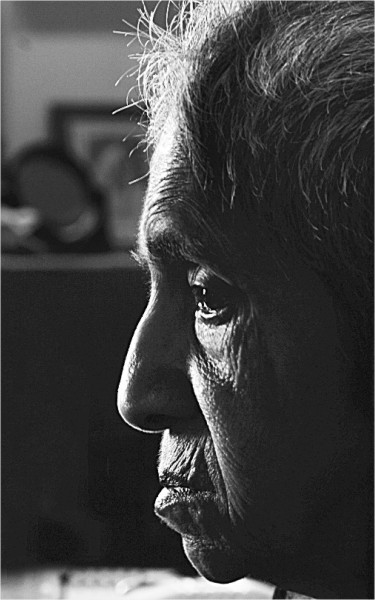
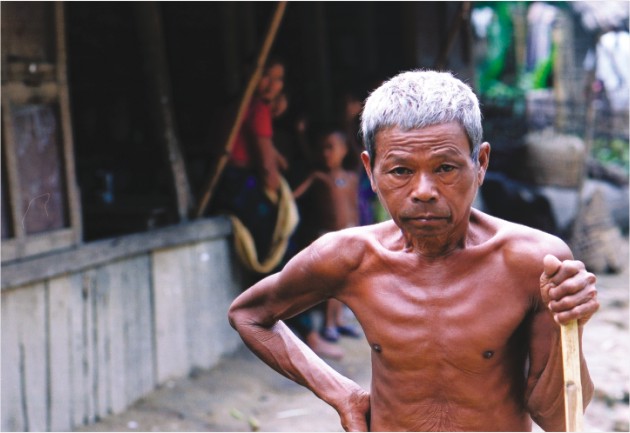
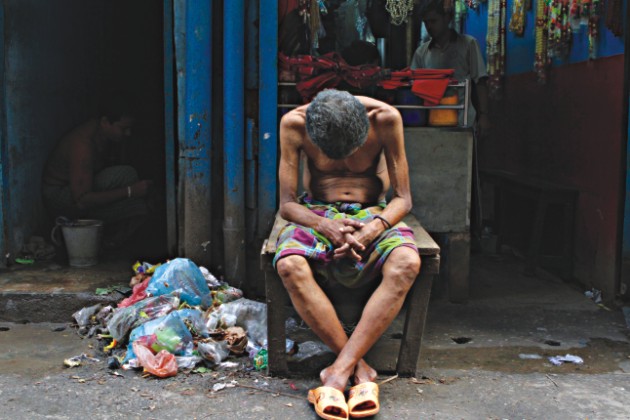
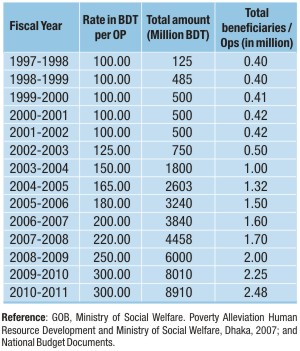 Research and recommendations
Research and recommendations